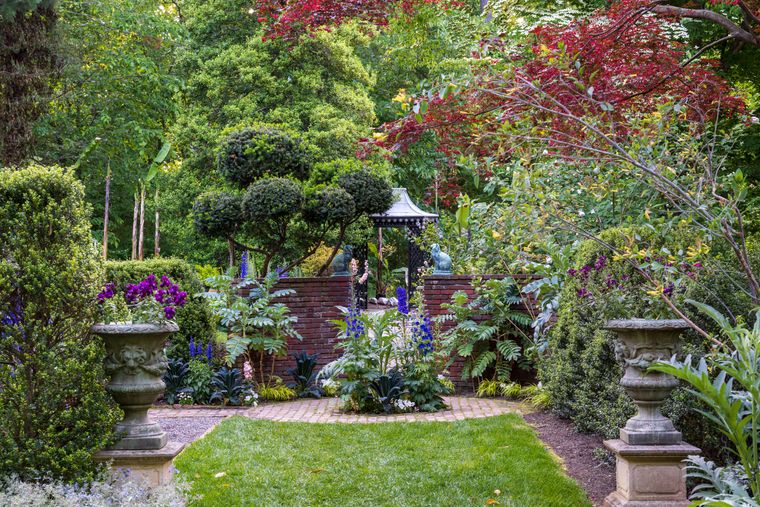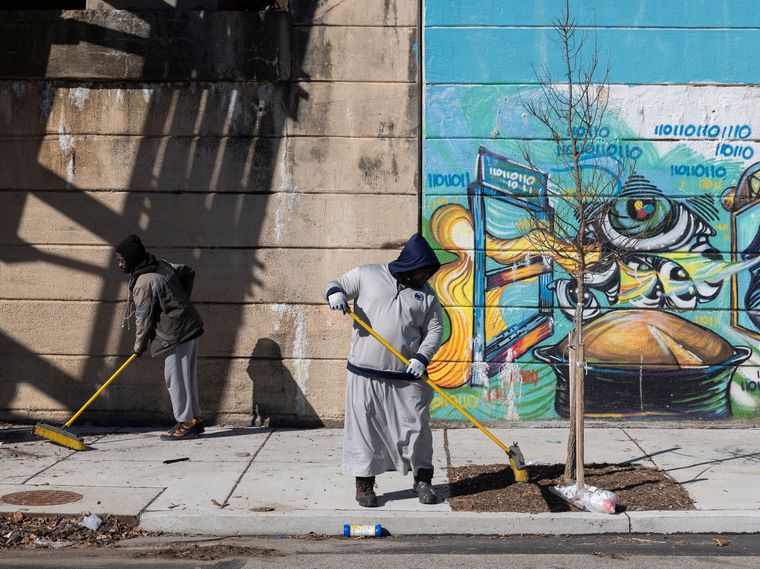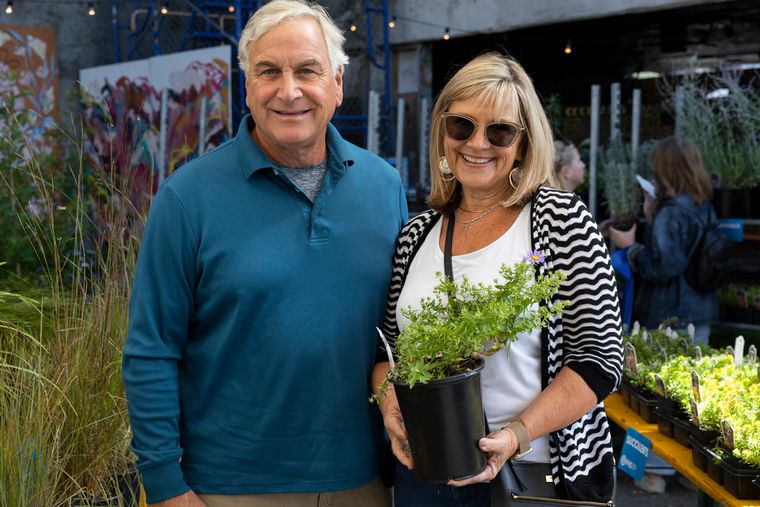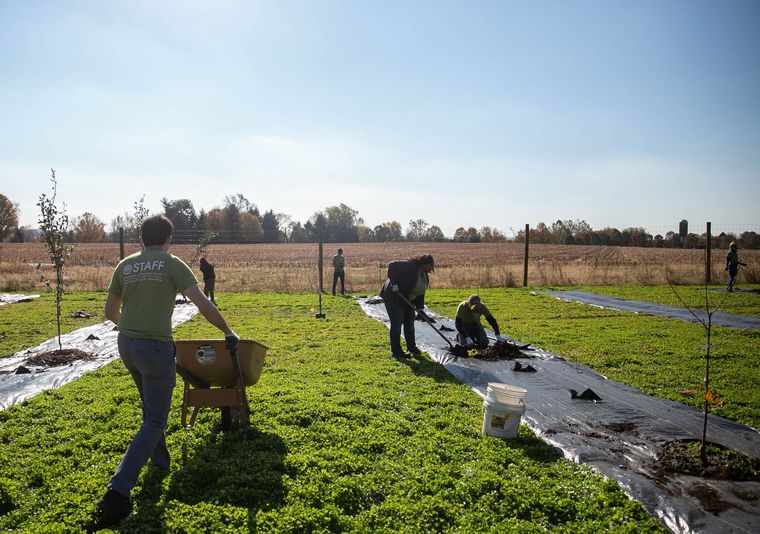



November Gardening Tips: Your Monthly Checklist
seasonal tips
gardening projects
plant care

By Sally McCabe, PHS Associate Director of Community Education
Gardening during November is a mix of nostalgia and anticipation, with leaves whispering goodbye and the soil preparing for winter.
While those of us gardening in areas closer to the city may see our crops survive the first random frost just before Halloween – resistance is futile! Even with intermittent weeks of respite where we forget about the cold and garden like maniacs, more visits from the frost fairy are inevitable in the coming weeks. Should we do one more round of frantic crop cover-ups? Or should we give in, and rip out the last of the summer crops??? I’m voting for cleanup, so I can put my energy into prepping those beds for spring.
As temperatures drop and leaves begin to turn into rich oranges and reds, it's time to clean up your garden and plant a foundation as you prep your beds for spring. When cleaning up your garden beds, you can compost the healthy stuff and toss sad and sorry looking plant detritus far from the garden, otherwise bugs and diseases can hang out over the winter and return to haunt you.
Here's some November gardening tips to make the most of your garden prep for winter.
Prepare Your Lawn
November is a great time to mow one last time. You can rake up leaves that would otherwise smother your grass, providing a great place for mold to thrive. Once collected, put these shredded leaves to work as mulch for your garden beds.
Collect those Leaves!
Collecting your leaves will not only keep them out of the landfill system, but it will give you sooooo many free benefits, including mulch for overwintering beds, carbon for next year’s compost and worm bins, and insulation for perennials and figs!
For starters, you can use leaves as mulch to protect your garden beds during the winter months. A thick layer of mulched leaves can insulate perennials and help keep your soil warm. Leaves also offer an invaluable source of carbon, balancing the nitrogen-rich material in your compost pile and worm bins.
I like to mow my leaves once or twice before piling 3-5 inches on my empty garden bed. For perennials, stick with a slightly less thick layer, and for newly planted bulbs, aim for a slightly thicker layer.

Protect Your Figs from the Frost
Fig trees can be sensitive to cold weather, but I’ve finally figured out the best way to keep these borderline-hardy babies safer over the winter. Turns out leaves are the perfect fig tree winter protection!
A few years ago, I planted a fig variety called Chicago, touted for its hardiness in our area. It was indeed hardy, but the fruit just wasn’t as good as my old Brown Turkey variety, which is not so hardy in the Philadelphia area. To combat this, I worked on insulating the trees with leaves to protect the fig tree in winter.
Last year, I collected plastic bags of leaves from my neighborhood on trash day and used them as insulating “pillows” piled around the fig trees. This did the trick! In addition to keeping your fig trees warm, the leaves will provide carbon-rich material for your compost come spring.
Plant Your Bulbs
November is your last chance to plant bulbs before the ground becomes too hard to work with. If you’re scoping out the half-price bulb sales, make sure they are firm and not dried out. Squeeze them gently; if they feel like paper, they might not sprout.
If you live in a neighborhood with a high squirrel population (who doesn’t?!), consider planting your tulips deeper and daffodils above them. Daffodils have a taste that critters dislike, often deterring them from digging deeper to reach the delicious tulips beneath.
For a detailed guide on planting bulbs, check out our recent blog!

Revel in the Fall Colors
November's palette is a feast for the eyes, with vibrant reds, golds, and deep purples. The fall leaf colors are really coming into their own this time of year, along with the fiery colors of asters, the rich tones of hydrangeas, and the vivid hues of sages and coleus. Now is also a great time to delight in the ephemeral flowers unexpectedly blooming on crab apples, plum, and cherry trees as though in anticipation of coming snow.
Deepen your plant knowledge. Sign up for PHS's monthly newsletter for more gardening tips.


